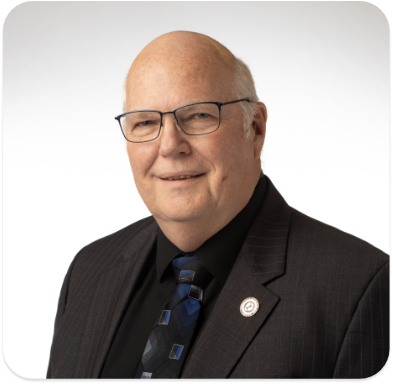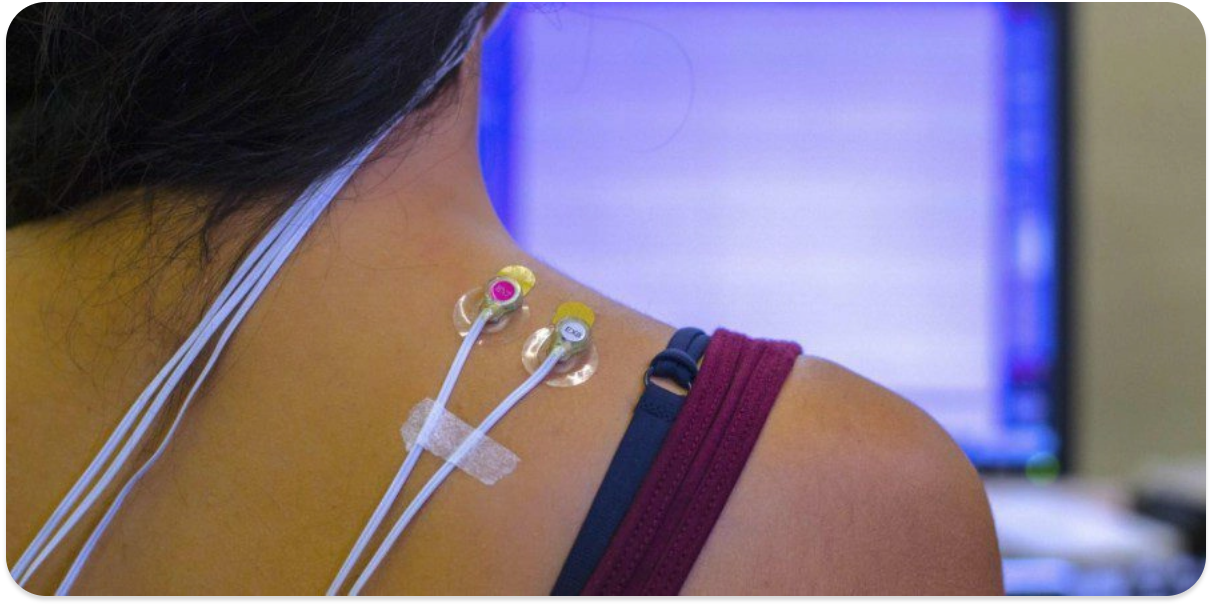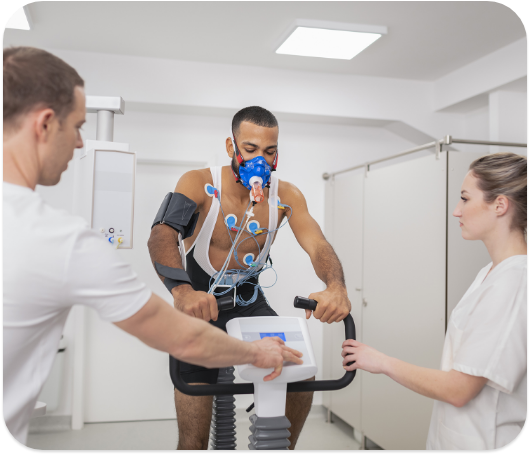Improving Performance Through Psychophysiology
Mental health and mindfulness play just as important a role in performance quality as an athlete’s physical training. As the relationship between psychology and biology becomes more clear, amateur athletes, performing artists, and even working professionals are now turning to sport psychology specialists to better understand how their thoughts and mindset can alter how they perform in an arena, theater, and office.
Our online Master's in Sport Performance Psychology is grounded in psychophysiology. By combining traditional sport psychology with the mind-body sciences of psychophysiology, you gain a comprehensive understanding of how the brain and body work together to influence human behavior and how those interactions can affect overall performance.
As a graduate of the M.S. in Sport Performance Psychology program, you will be able to design and implement intervention techniques to enhance the performance of individual athletes and artists, sports teams and performance groups, and sports-related or other high-stress organizations. In addition to sport psychology and psychophysiology, you will also build skills in biofeedback, psychopathology, optimal functioning, athletic counseling, and more.
Master's Degree in Sport Performance Psychology Job Outcomes
Upon graduation from the online M.S. in Sport Performance Psychology, you will have the skill set to pursue or enhance your existing career as a coach, trainer, performance specialist, educator, consultant, and beyond in a variety of settings:
- Professional sports
- Youth sports
- Performing arts
- College and university athletic departments
- Military and government agencies
- Exercise, health, and wellness centers
- Private practice
Other Online Psychophysiology Programs
Interested in another online psychophysiology program? We offer multiple graduate degree and certification options that may align more closely with your goals.
Graduate Programs
- M.S. in Psychophysiology
- Optimal Performance Specialization
- Science and Research Specialization
- Ph.D. in Applied Psychophysiology
- Optimal Performance Specialization
- Clinical Psychophysiology Specialization
- General/Investigational Specialization
- Specialization in Teaching and Advanced Research (STAR)
Certificate Programs
Program Components
Admissions Requirements
Applicants for the M.S. in Sport Performance Psychology degree must submit the following documents:
- An official transcript from an accredited university demonstrating successful completion of a bachelor’s degree with a 3.0 GPA or better
- Professional resume or CV
- Personal statement
- Faculty interview
Invest in Your Future
Saybrook University remains committed to keeping higher education affordable and accessible. Our Financial Aid Department is ready to offer guidance and support in determining suitable financial assistance tailored to your needs, including potential scholarship opportunities, grants, and more.
Cost
Saybrook wants you to have the information you need to make an informed decision about your academic and career aspirations. Our cost calculator provides an estimated cost of attending Saybrook to earn your M.S. in Sport Performance Psychology degree.
FAQs
Is the M.S. in Sport Performance Psychology program online?
Yes! Saybrook University offers one of the leading sports psychology programs online. The M.S. in Sport Performance Psychology program is in a completely virtual format, allowing students flexibility with their studies. Students are invited and highly encouraged to attend one of the optional online Virtual Learning Experiences. The sport psychology master’s degree can be complete without any face-to-face instruction.
How long does the M.S. in Sport Performance Psychology program take to complete?
The expected length of the Sport Performance Psychology master’s program is two years with 40 earned credits.
Is fieldwork required to complete the Sport Psychology master’s program?
An optional human performance field experience is available as an elective course for students but is not required to complete the sport psychology online degree. The ability to participate in fieldwork electives for this program may vary by state. Contact our Admissions Department for more information.
How does sport psychology improve athletic performance?
Sport psychologists help athletes identify and overcome problems that hinder their performance. This help comes in a variety of forms depending on the specific needs of that athlete. Some athletes create strategies to use their bodies in a more efficient way. Others may need to confront their fears after recovering from an injury. Psychology can also help coaches and athletes communicate more clearly with their team.
This is only a small sample of how sports and performance psychology can improve athletic performance.
Sample Courses
Optimal Functioning in the Sports and Performing Arts Environment
This course provides the in-depth knowledge and skills you need to assess athletic performance and train athletes and performing artists to recognize then correct psychological and psychophysiological barriers to optimal functioning. This knowledge is essential to helping athletes and artists rectify such problems as incorrect timing and patterns of breathing, muscle acceleration and tension relationships, and stress responses to impacts on performance.
Psychological Applications for Sports and Performing Arts
This course is designed to introduce you to theory, research, and practice of sport performance enhancement for both individual and groups of performers by a variety of psychological interventions. Theoretical understanding and proficiency in the use of mental skills training techniques such as goal setting, imagery, self-talk, and arousal regulation will be a prime focus.
Catalog
Please refer to our academic catalog for more information on the M.S. in Sport Performance Psychology program.
Career Outcomes
According to the Bureau of Labor Statistics, the job outlook for qualified psychologists is expected to grow much faster than average. As public awareness builds regarding the connection between mental health and overall health, licensed clinical psychologists may find careers in education, nonprofits, social agencies, and private-sector organizations. They will be challenged to address the needs of many populations, including students, seniors, military personnel, veterans, prisoners, parolees, first responders, and those suffering from chronic illness and substance abuse.
Saybrook University prepares you to make an impact in a variety of high-demand careers. Below, you will find possible career options and salaries associated with this degree.
Data is pulled by a third-party tool called Lightcast, which includes data from sources including the U.S. Bureau of Labor Statistics, the U.S. Census Bureau, online job postings, and other government databases. The information below represents a regional and national career outlook related to this degree program*. Saybrook University is dedicated to assisting you in achieving your career goals.
*Many degree programs are intended to fulfill licensure requirements in specific states. The data shown here may not represent the state where you currently reside. For more information on how this program is applicable to the requirements of your state, please speak with your admissions specialist.
University Learning Experience
Our M.S. in Sport Performance Psychology program is a 100% online program. While the core of this program is completed asynchronously, there are some optional synchronous, online features designed to deepen your educational experience. We call this a Virtual Learning Experience (VLE). In addition to the VLE, you will begin your studies with a virtual Welcome Week. Welcome Week activities, including a program orientation, are held online during the week before the start of Fall and Spring semesters. The in-person Community Learning Experience (CLE) is also available for you to explore. The CLE is held every odd-numbered year. They are optional and not required to complete the program.

Psychophysiology Faculty
Saybrook’s Sport Performance Psychology faculty are practitioner-scholars dedicated to advancing their field through continued practice and comprehensive instruction. Meet some of our faculty members below.

- President, Michigan Society for Clinical Hypnosis
- Past President, Society for Psychological Hypnosis
- Past President, American Society for Clinical Hypnosis
- Past President, Society for Clinical and Experimental Hypnosis
UNBOUND: Psychophysiology
Bridging the gap between psychological and medical science, you will explore the close interconnectedness between the brain and body as part of our psychophysiology degree programs.

Ready to Take the Next Step?
Submit an inquiry and one of our admissions specialists will connect with you to answer your questions and guide you through next steps.
























